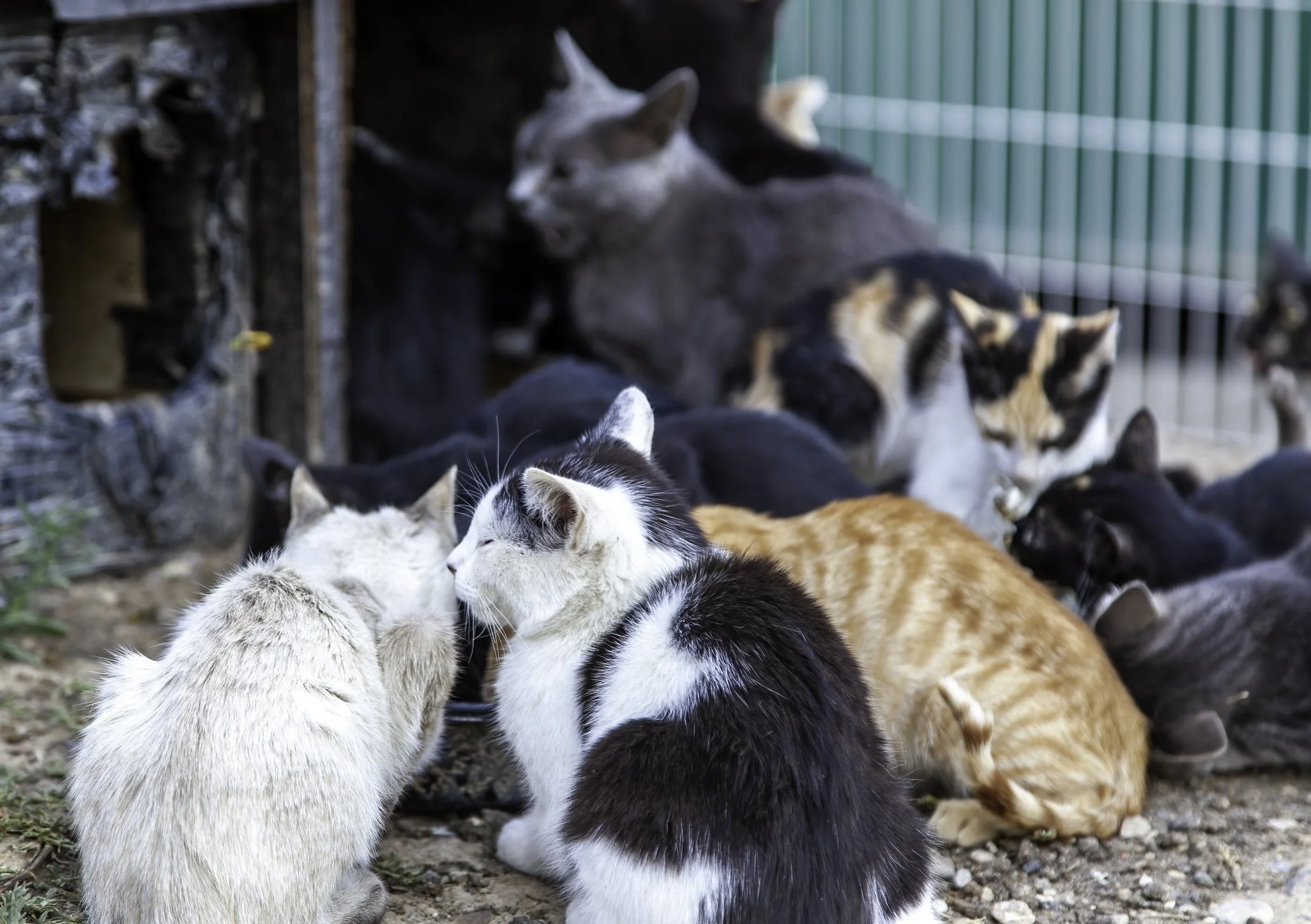Management of a feral cat colony (2) – FIP
Another condition that is often prevalent in feral colonies, or where a large number of cats live in close quarters, is FIP - Feline Infectious Peritonitis. FIP is caused by the feline coronavirus, FeCV - this is not the same as the human version. The FeCV is common in young cats and is considered widespread.
Although the virus can be found in the faeces of many cats, in some, a mutation causes the cat’s immune system to react in a certain way and if this happens, the cat will go on to develop FIP. Only a small percentage of cats exposed to the virus will go on to develop full blown FIP, this can be over a long time period; weeks, months or several years.
Large groups of cats living outside in close quarters are susceptible to contracting diseases such as FIP
Signs of FIP
The clinical signs are numerous, a high temperature, lethargy and losing weight/not eating being a few. Often the early signs are non-specific and therefore difficult to diagnose, being similar to many other viruses, conditions and diseases.
FIP often infects the respiratory tract (nose and throat) or intestines and there are two recognised forms of this disease:
Wet, or effusive form
In this form, there will be a build-up of fluid in the abdomen or chest of the affected cat.
Dry or non-effusive form
Other forms of FIP show non-specific signs and may affect the eyes, brain and most of the organs in the body, showing as neurological issues, bleeding and breathing difficulties.
Diagnosis
Diagnosing FIP is hard, due to the non-specific nature of many of the symptoms, apart from the wet form which is easily recognised by causing the cat to have a pot-bellied appearance. There are no definitive tests as yet. For CAT77, as always, the quality of life of the cat is our main concern. Every FIP+ cat will be fully assessed and a decision made together with our vets.
The challenges for rescues dealing with FIP
To prevent FIP it is necessary to prevent FeCV infection. This is challenging, but not impossible. FeCV is passed orally, via the faeces and saliva of infected cats. It will not always mutate into FIP in every cat.
As this disease is often found where numerous cats are housed at very close quarters, it is particularly difficult for rescues such as ours. However, there are definitely ways to help prevent any potential spread, by monitoring the number of cats at each fosterer and keeping them in small, stable groups, using isolation pens for cats showing signs of illness and above all proper hygiene, particularly with litter trays and feeding bowls.
In the last few years, some cases have been successfully treated using antiviral drugs. Previously, this disease was fatal for cats.
Can FIP be prevented?
In recent years a vaccine has been developed to protect against FIP and is available in some countries. Currently, it is given to cats over the age of 16 weeks. As it is fairly new, time will tell whether it is effective at controlling this disease over the long term.
© Cat Action Trust 1977

